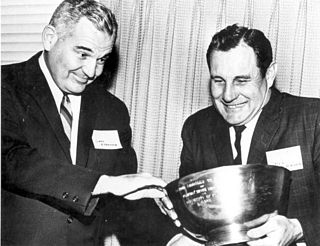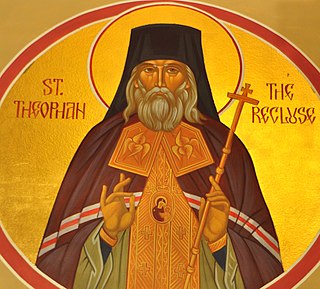A Quote by Henri Frederic Amiel
Every man is a priest, even involuntarily; his conduct is an unspoken sermon, which is forever preaching to others.
Related Quotes
Every man has some reminiscences which he would not tell to everyone, but only to his friends. He has others which he would not reveal even to his friends, but only to himself, and that in secret. But finally there are still others which a man is even afraid to tell himself, and every decent man has a considerable number of such things stored away. That is, one can even say that the more decent he is, the greater the number of such things in his mind.
Every one should consider himself as intrusted not only with his own conduct, but with that of others; and as accountable, not only for the duties which he neglects, or the crimes that he commits, but for that negligence and irregularity which he may encourage or inculcate. Every man, in whatever station, has, or endeavours to have his followers, admirers, and imitators, and has therefore the influence of his example to watch with care.
I believe that the unity of man as opposed to other living things derives from the fact that man is the conscious life of himself. Man is conscious of himself, of his future, which is
death, of his smallness, of his impotence; he is aware of others as others; man is in nature, subject to its laws even if he transcends it with his thought.
It is obvious that Paul did not regard prayer as supplemental, but as fundamental-not something to be added to his work but the very matrix out of which his work was born. He was a man of action because he was a man of prayer. It was probably his prayer even more than his preaching that produced the kind of leaders we meet in his letters.
While the difference between a bad sermon and a good sermon is mainly the responsibility of the preacher, the difference between good preaching and great preaching lies mainly in the work of the Holy Spirit. . . . We should do the work it takes to make our communication good and leave it up to God how and how often he makes it great for the listener.
Every Christian is chosen-chosen for similar deeds, namely: to be with the Lord, through unceasing remembrance of Him and awareness of His omnipresence, through the preaching and fulfillment of His commandments, and through a readiness to confess one's faith in Him. In those circles where such a confession is made, it is a loud sermon for all to hear.
Among those whose reputation is exhausted in a short time by its own luxuriance are the writers who take advantage of present incidents or characters which strongly interest the passions, and engage universal attention. It is not difficult to obtain readers, when we discuss a question which every one is desirous to understand, which is debated in every assembly, and has divided the nation into parties; or when we display the faults or virtues of him whose public conduct has made almost every man his enemy or his friend.








































